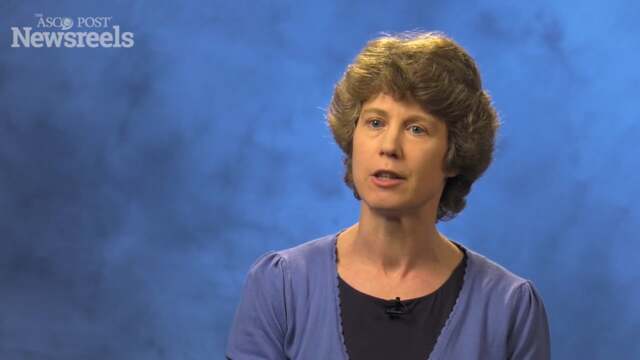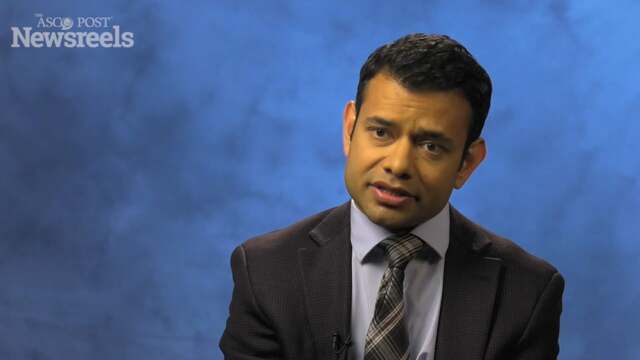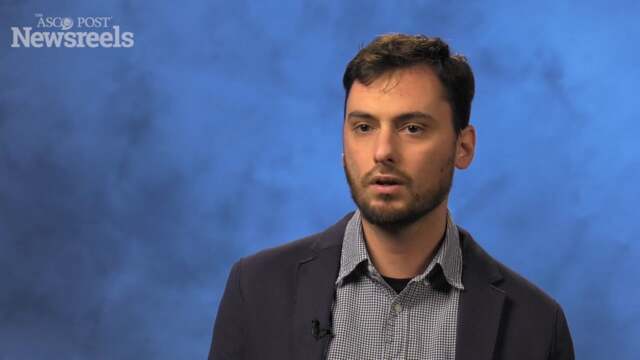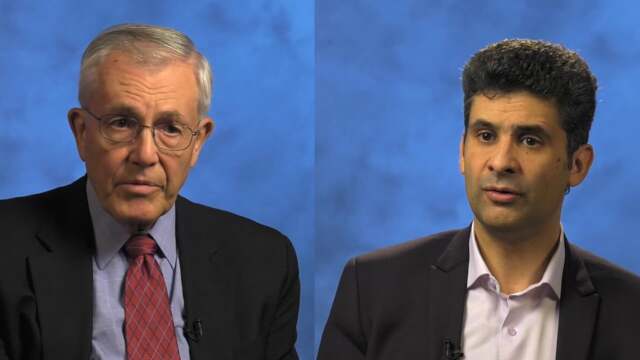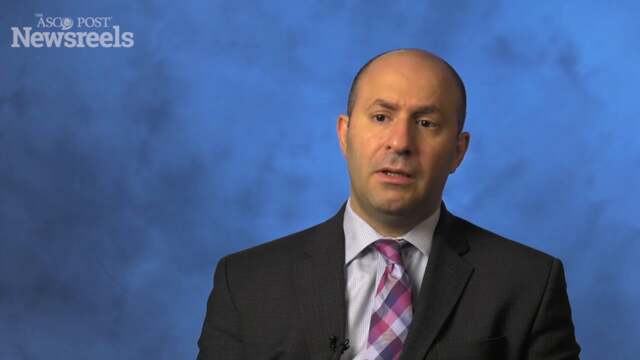Paul L. Nguyen, MD, on Prostate Cancer: Active Surveillance
2017 Genitourinary Cancers Symposium
Paul L. Nguyen, MD, of the Dana-Farber Cancer Institute, summarizes a session he co-chaired, which included discussion of Canadian vs U.S. guidelines; ProtecT; genomic and hereditary tests; and imaging to guide active surveillance. (General Session 1)
Emma Hall, PhD, of the Institute of Cancer Research, London, discusses long-term outcomes with chemoradiotherapy vs radiotherapy alone, and standard vs reduced high-dose volume radiotherapy in muscle-invasive bladder cancer. (Abstract 280)
Sumanta K. Pal, MD, of the City of Hope, discusses the evolution of circulating tumor DNA profile from first-line to second-line therapy in metastatic renal cell carcinoma. (Abstract 434)
Joshua Armenia, PhD, of Memorial Sloan Kettering Cancer Center, discusses new information that is changing the understanding of prostate cancer, including the identification of a new subclass, which represents 21% of cases, and the discovery of recurrently mutated cancer pathways not previously implicated in prostate cancer (Abstract 131).
George J. Bosl, MD, of Memorial Sloan Kettering Cancer Center, and Karim Fizazi, MD, PhD, of Gustave Roussy and the University of Paris Sud, offer the “pro” and “con” viewpoints for treatment intensification in patients with poor-prognosis germ cell tumors with unfavorable marker decline.
Toni K. Choueiri, MD, of the Dana-Farber Cancer Institute, discusses study findings on apatorsen plus docetaxel vs docetaxel alone in platinum-resistant metastatic urothelial cancer. (Abstract 289)
